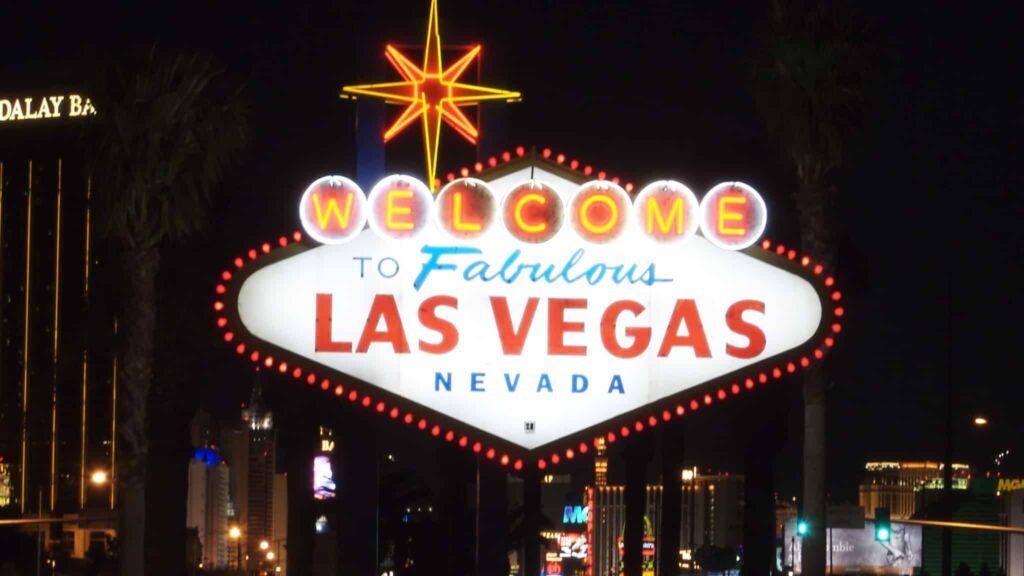When the Consequences Were More Than Just the Wager: Gambling, an age-old practice deeply embedded in human history, has seen a handful of individuals who not only demonstrated betting expertise but also left an indelible mark on society and historical events. Their stories, often wrapped in legend and high stakes, show the profound way gambling has impacted culture, economics, and key historical milestones beyond casinos and racetracks.
The Earl of Sandwich: A Culinary Innovation Birthed from the Gambling Scene
John Montagu, the 4th Earl of Sandwich (1718-1792) , was not just a casual gambler but a prominent figure in 18th-century British politics. Despite his political engagements—marked by both triumphs and controversies—his supposed gambling routine played a crucial role in culinary history, surpassing his governmental contributions.
The tale, first publicized in Pierre-Jean Grosley’s ‘Tour to London’ (1772) , describes an event around 1762 . During an intense 24-hour gambling session, the Earl, deeply absorbed in cribbage, chose not to break for meals. To satisfy his hunger without interruptions, he cleverly asked for roast beef between bread slices, diverging from the elaborate meals common at the time.
The relatively simple yet groundbreaking meal request stemmed from a gamer's practicality, allowing the Earl to sustain himself with one hand while continuing to play cards with the other, reducing the risk of greasy cards. Observers, seeing the cleverness in this approach, eagerly requested “the same as Sandwich,” thereby popularizing the term and the item.
Though the sandwich's gambling origin tale is engaging and widely accepted, some historians propose other beginnings. Some argue that the Earl might have conceived the sandwich for its convenience while engrossed in his political duties. Nonetheless, regardless of its exact origin, the sandwich’s legacy endures, transcending social and geographical boundaries, emerging as a culinary staple.
Whether entirely factual or slightly exaggerated, this story vividly captures the pervasive nature of gambling in 18th-century British aristocracy. Gambling wasn't just a pastime but deeply woven into elite lifestyles, influencing daily habits and culinary preferences. Even seemingly trivial demands like a no-fuss meal during a card game can spark culinary innovations that resonate across centuries, leaving a notable mark on the global culinary landscape, far outshining the Earl's political achievements.
Wild Bill Hickok: The Icon of the Wild West - Gunslinger and Gambler
James Butler “Wild Bill” Hickok (1837-1876) represents more than just a name from the American Wild West; he embodies the era's essence—a mix of law and lawlessness, chance and fate, danger and opportunity. A master marksman and a charismatic gambler, Hickok's life was a high-stakes saga against the backdrop of America's newly expanding frontier.
Hickok's formidable reputation wasn't just built on gambling prowess but was deeply rooted in his lethal skills with firearms. In the unpredictable towns of the western frontier, where law enforcement was often minimal, gambling establishments served as social and economic centers. Hickok became both a participant in the gaming tables and a keeper of peace in these volatile environments.
His life was marked by numerous gunfights, some celebrated, others lesser-known, adding to his mythic status. Tales of his confrontations, whether as self-defense or enacting frontier justice in towns like Hays City and Abilene, became legendary. Meanwhile, gambling was a constant in Hickok's life, providing sustenance and entertainment, enhancing his reputation as someone living on the edge.
Hickok's most famous moment came under tragic circumstances on August 2, 1876 , in Deadwood, Dakota Territory. During a poker game at Nuttal & Mann’s Saloon, he was shot from behind by Jack McCall. He held a hand of two black aces and two black eights, with an unknown fifth card, which came to be known as the “dead man’s hand,” symbolizing the fatal turn gambling could take.
Hickok's untimely death at the gaming table immortalized him as a tragic hero, with the “dead man’s hand” becoming a metaphor for gambling's inherent risks. His legacy transcends personal success, symbolizing the role of gambling in shaping the cultural and economic landscape of the American West.
In burgeoning frontier towns, saloons were more than just places for relaxation; they were vital community hubs and commercial hotspots, functioning as informal banks, social spaces, and news centers. Gambling, within this milieu, was a pivotal economic driver, offering both risks and opportunities. The image of the gunslinging gambler like Hickok became a lasting symbol of this era, profoundly influencing literature, film, and popular culture, shaping an enduring and romanticized vision of the Wild West.
Titanic Thompson: The Con Man Who Gambled with Life Itself
Alvin Clarence “Titanic” Thompson (1892-1974) was more than a gambler; he was a maestro of deceit and a brilliant con artist. He turned gambling into an elaborate game of manipulation and psychological strategy. Thompson's life was a perpetual pursuit of high-risk bets, leveraging charm, cunning, and an uncanny knack for reading human nature. His self-styled nickname, “Titanic,” was an invented backstory, erroneously suggesting he survived the Titanic disaster, crafted to enhance his mystique.
Thompson was a master of gambling, exploring a vast range of games, including cards like poker and bridge, as well as dice, golf, and even quirky bets that seemed harmless. He was the ultimate proposition player, always in search of unusual wagers, often designed to secretly favor him or to exploit the confidence or naivety of his opponents. His career was a series of complex plans that required careful thought and flawless implementation, frequently involving cross-country travels, meetings with both the elite and the criminal world, and numerous face-offs with law enforcement.
His legendary adventures involved betting on races that were fixed, pairing up with selectively chosen partners to manipulate golf games under predetermined rules, and creating intricate scams in card games to deceive unsuspecting opponents. Thompson's life unfolds like a classic tale full of daring adventures and narrow escapes, featuring characters as intriguing and morally complex as Thompson himself. Although he didn’t directly change major political or economic landscapes, his legacy highlights the gray moral zones within gambling culture.
Titanic Thompson represents the shadowy, more cunning side of gambling, embodying the charming rogue who works outside mainstream ethical boundaries. He symbolizes a gambler surviving by sheer intellect, navigating the thin lines between real skill, calculated chance, and outright deceit. His adventures, detailed in biographies and gambling tales, offer a thrilling yet unsettling look into the hidden world of high-stakes gambling, where huge fortunes could be made or lost in a single smartly crafted bet, and where honesty and fair play were often compromised in the pursuit of greed.
The story of Titanic Thompson stands as a stark reminder of gambling's compelling and potentially corrupting charm. He illustrates the dangerous allure of unchecked ambition and the ethical sacrifices made in the relentless pursuit of victory. His life, undeniably captivating, serves as a warning about the destructive path of deception and manipulation in the quest for riches through gambling. It contributes to the romantic yet flawed mythology around gamblers, shaping public opinion and reinforcing negative stereotypes about the gambling community.
Nick the Greek: A Generous High Roller Who Played for Millions with Style
Nicholas 'Nick the Greek' Dandolos remains a legendary figure in gambling, not solely due to the immense amounts he bet but also because of his thoughtful and almost philosophical approach to high stakes. Unlike many driven by desperation or greed, he approached gambling with intellectual curiosity and emotional balance, seeing it as a profound challenge combining strategy, psychology, and the whims of fortune. His often-quoted motto, 'The next best thing to gambling and winning is gambling and losing,' perfectly captures his unique, nearly Zen-like viewpoint on the ups and downs of gambling.
Born into a prosperous Greek family, Dandolos lost his initial inheritance through gambling but was not discouraged. He journeyed the world, engaging in legendary marathon gambling sessions, experiencing both monumental wins and losses. Celebrated for his skill in poker and other high-stakes games, he frequently wagered sums unimaginable to many, sometimes hundreds of thousands or millions of dollars in one extended session. His epic gambling contests with other great gamblers, like Johnny Moss, became famous spectacles attracting large audiences and intense media coverage.
Despite the enormous sums of money he handled, Nick the Greek was known for his deep generosity and frequent charitable donations. He viewed wealth not as something to hoard but to be shared, often giving away a substantial part of his winnings to those in need. This rare combination of playing at the top levels of gambling while maintaining a philanthropic spirit earned him admiration and respect, elevating him beyond the typical gambler stereotype in society.
Nick the Greek’s influence rests more in changing public perceptions of high-stakes gamblers than in direct impact on major events. He showed it was possible to navigate the risky world of professional gambling without falling prey to greed or losing one's humanity and sense of social responsibility. His life and mindset challenged existing, often negative stereotypes of gamblers as ruthless or doomed to addiction, presenting an alternative model: a gambler who pursued the intellectual challenge and thrill of competition and used his winnings for good, subtly yet significantly altering societal views on gambling.
Kerry Packer: The Media Tycoon Who Gambled Like a Giant and Came Out Ahead
Kerry Packer was a towering figure in Australian media, expanding a vast empire in television and publishing. Yet, he was perhaps more famous globally for his bold and almost legendary high-stakes gambling. Known as a 'whale' in casinos, he regularly bet huge amounts, sometimes millions in one go, whether on blackjack, roulette, or obscure sporting events. His gambling didn't just entertain; it became legendary, not only for the sheer size of the bets but for his larger-than-life character and fearless attitude.
Packer's gambling stories are full of incredible wins and losses, like when he would win tens of millions in single visits to Las Vegas, leaving casino staff stunned, or when he faced colossal losses but remained unfazed. He was known for his aggressive betting, challenging casino limits and asking for higher stakes, sometimes startling casino managers. His publicly reported wins and losses made him a consistent media sensation, enhancing his image as a flamboyant, unpredictable, and powerful figure in gambling.
Kerry Packer’s legacy is profound, impacting mainly two areas: globally influencing the casino industry, especially in high-stakes gambling in Las Vegas and Australia, by pushing casinos to cater to big spenders like him, and by crafting the image of the 'whale' gambler—a vital part of the modern casino business. Secondly, his gambling tales added to his public image as a daring, risk-taking business tycoon, influencing culture's view of wealth and the attraction of big risks in business and gambling.
Packer's passion for gambling highlights the rapid globalization of high-stakes betting that took place during the late 20th century. Wealthy individuals like him often crossed countries to play for substantial amounts at prestigious casinos, from the bright lights of Las Vegas to the luxe gambling venues in London and Monte Carlo. His life is a modern tale of the close ties between gambling, wealth, and power, which significantly influence the global entertainment scene and captivate the public’s imagination with the lavish lifestyles and daring risks of the wealthy.
Conclusion: The Lasting Influence of Gamblers Beyond the Casino Tables
The intriguing stories of these renowned gamblers reveal that gambling goes beyond just games of chance; it acts as a significant cultural phenomenon that can deeply affect various areas of human history. From the accidental creation of the sandwich by the Earl of Sandwich to the legendary narratives of the Wild West shaped by figures like Wild Bill Hickok, and from the cautionary yet morally complex tales of Titanic Thompson to Nick the Greek's generous disposition, along with Kerry Packer's impact on contemporary casinos, these characters demonstrate the diverse and sometimes unexpected ways in which gambling and individual gamblers have significantly marked world history.
Gambling by nature involves risk and potential downsides, but the rich stories of these individuals, whether they are seen as adventurous or cautionary, offer a complex view of human experience. They reflect universal themes such as risk-taking, the allure of sudden wealth, and the application of skill amidst unpredictability. Their influence extends beyond mere financial gain or loss to touch areas like culinary arts, pop culture, international business practices, and our understanding of human nature itself, showing that the reach of gambling and gamblers spreads far beyond the card table into the broader canvas of human history.
These memorable gamblers have shaped history in their own distinctive ways, often not by aiming to change society but as byproducts of their gambling-focused lifestyles and personal philosophies. Their decisions created unexpected consequences, reminding us that history is not just formed by political or economic movements but also by cultural practices, personal passions, and the element of chance that gambling vividly illustrates.
External Resources:



